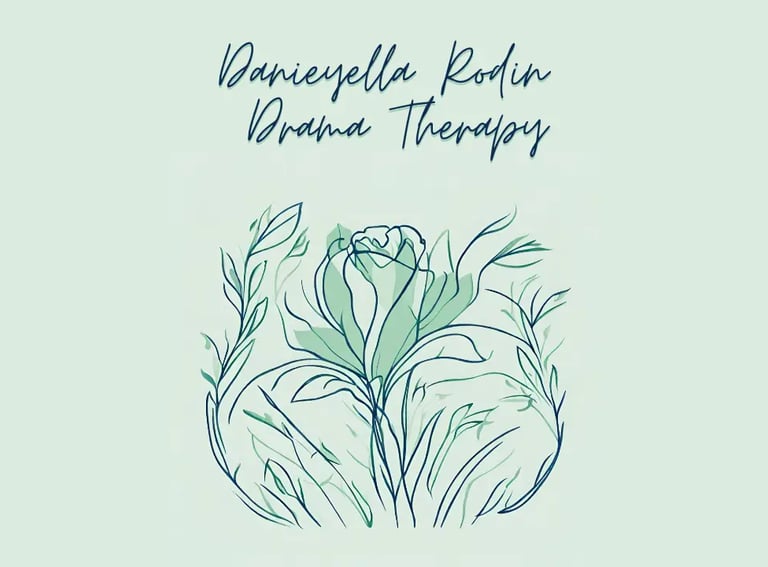Why try Drama Therapy?
Holistic healing: Drama Therapy is a creative and expressive approach to psychotherapy
6/25/2025


Drama therapy is an experiential form of psychotherapy that uses creative techniques to facilitate personal growth, transformation, and healing. By its nature, it is expressive, encouraging clients to engage with their material in a variety of ways — using a creative lens through which to approach the therapeutic journey, either directly or indirectly.
While drama therapists may use techniques such as role-play, storytelling, metaphor, symbols, movement, and improvisation, banish your thoughts of high school drama classes. Instead, think of drama therapy’s creative approach as offering a little distance — a space through which to view yourself and the stories you bring to therapy with fresh eyes: to explore familiar emotions, thoughts, and experiences in in innovative ways.
Although it may seem daunting to step outside your comfort zone, it’s important to note that a drama therapist will never force you into a particular mode of creative expression. This isn’t about performance — it’s about process. Rather, a drama therapist will invite you to think, feel, and act through the material you bring to therapy using a creative lens, which may, hopefully, offer new insight.
For example, let us imagine beginning a session by looking at an image and imagining what might be happening in it. As a therapist, I may ask you, the client, questions such as: What is the figure doing? Where have they come from? Where are they going? What is the relationship between the book and the figure?
Very quickly, our discussion might highlight themes that are vital and relevant to your therapeutic journey. Perhaps:
The figure tore out that page from the book and is looking for inspiration to write a new chapter of their story...
Or:
The page is part of the story that was forgotten — torn out, lost, and now found again. So perhaps the figure needs to find the place in the book where it belongs...
When clients engage in creative exercises such as this, they not only find a voice for their inner thoughts and feelings but also begin to confront issues that may previously have seemed insurmountable. By approaching challenging content obliquely, it becomes more manageable — without being avoided altogether. Through externalising thoughts and emotions, clients can examine them from a new angle, which can lead to personal insights and revelations.
Of course, sometimes particular matters need to be addressed directly. While talking about these things is an important part of the therapeutic process — helping to set the scene and provide context — drama therapy also offers opportunities for experiential and embodied exploration: to move beyond words and into a felt, internal experience. Through role-play and other action methods, clients can gain deeper awareness of themselves and others, developing a more holistic sense of healing by engaging more aspects of the self. By taking on different roles or perspectives, individuals can experiment with new ways of thinking and behaving, which can lead to real-world change — real transformation. This process often helps clients to develop greater empathy towards themselves and others, enhancing their interpersonal relationships.
The flexibility of drama therapy makes it adaptable to people of different ages, backgrounds, and challenges, making it a versatile tool for personal growth. The importance of play in drama therapy cannot be overstated. Play is a natural form of expression and exploration, and incorporating play into therapy creates an inviting and accessible atmosphere. This element of fun can make it easier for clients to engage with difficult emotions, reducing the barriers that might otherwise inhibit communication and openness. In this playful setting, clients are encouraged to embrace spontaneity and imagination, which can lead to unexpected — but powerful — breakthroughs in their therapeutic journey.
In couples or group-based drama therapy, the collaborative nature of many exercises fosters a sense of connection and community, reminding clients that they are not alone in their feelings or experiences. These groups are led by the drama therapist, who structures and facilitates these relational creative experiences — working to establish a “safe-enough” environment while also challenging participants to ensure that they are moving towards their therapeutic goals in a constructive and meaningful way.
Whether you’re looking to work through trauma, enhance self-esteem, or simply understand yourself better, drama therapy offers a unique path to transformation that embraces your creativity and narrative. If you’re curious about how drama therapy could benefit you, consider taking the first step towards a more expressive and fulfilled life.


